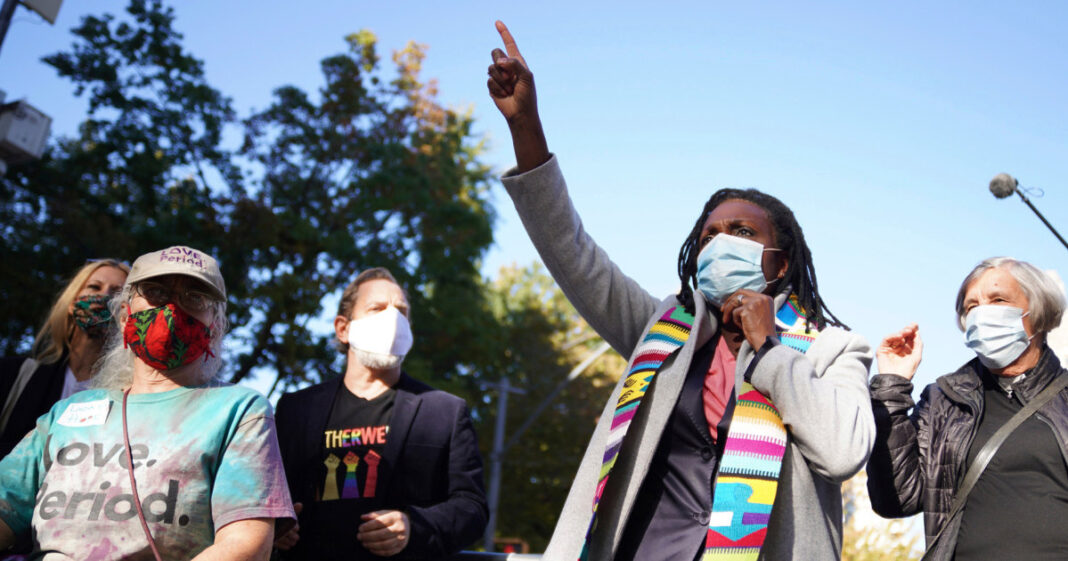Charlie Kirk’s Memorialization: A Complex Racial and Religious Dialogue
The recent memorialization of Charlie Kirk, particularly among conservative circles and evangelical communities, highlights a significant divide within America’s racial and religious landscape. Much of the conversation has revolved around Kirk’s faith and his emerging status as a martyr-like figure, a portrayal that contrasts sharply with the views of many Black clergy who challenge the romanticized narrative surrounding his life and beliefs.
The Immediate Aftermath of Kirk’s Death
Charlie Kirk’s tragic death on a college campus in Utah shocked the nation, and graphic videos of the incident quickly went viral. His killing has ignited heated discussions about race and politics in America, especially in the context of Donald Trump’s presidency. Many conservatives and evangelicals view Kirk as a principled warrior for conservative values, often referring to his strong Christian faith. In stark contrast, Black pastors from various denominations have taken to their pulpits to criticize the rhetoric that Kirk promoted throughout his life, which they argue perpetuates division and hate.
Rev. Howard-John Wesley articulated this sentiment during a sermon viewed tens of thousands of times, stating, “How you die does not redeem how you lived.” This reflects a growing unease within parts of the Black church concerning the valorization of individuals whose actions contradict the teachings of Jesus Christ and the Gospel.
A Split-Screen of Reactions Across Denominations
On the same Sunday, thousands gathered in a football stadium in Arizona to pay tribute to Kirk, celebrating him as a martyr and an inspirational conservative hero. This event felt almost like a political rally, blending Christian symbolism with right-wing conservativism, which critics argue has been a growing trend since Trump’s rise in the Republican Party.
In direct opposition, Black clergy have emphasized the negative impacts of Kirk’s message. They cite his past remarks that denigrated marginalized groups, including people of color, immigrants, and the LGBTQ+ community. Prominent figures such as Rev. Jacqui Lewis have pointed out historical parallels between Kirk’s rhetoric and the era of Christian justifications for colonialism and slavery, arguing that such views are contrary to the essence of Christianity.
Critiques on the Idea of Martyrdom
To many Black pastors, turning Kirk into a martyr is a troubling and, to them, misguided act. Rev. F. Bruce Williams stated, “what is also tragic is they’re trying to make him a martyr of the faith,” emphasizing that while Kirk’s death was tragic, it does not equate to suffering for the Christian faith as he understands it. Similarly, Rev. Wesley condemned the national mourning for Kirk, questioning the honor given to someone who spread divisive ideologies.
The comparisons between Kirk and Martin Luther King Jr. raised alarm among several Black leaders, who felt it was inappropriate. As Rev. Jamal Bryant stated, “The only thing they got in common is both of them was killed by a white man. After that, they got nothin’ else in common.” Such statements underscore the painful recognition of racial dynamics in today’s America and challenge the narratives constructed by those who wish to canonize Kirk.
The Duality of Support Among Some Black Pastors
Despite the prevailing critique, some Black pastors resonate with Kirk’s conservative message. Figures like Patrick L. Wooden Sr. emphasize the importance of conservative Christian values and assert that liberal policies often sidestep the needs of working-class Black Americans. Wooden’s endorsement of Kirk’s beliefs regarding issues like LGBTQ+ rights reflects a segment of the Black community that aligns with Kirk’s traditional values.
Encouraging dialogue within polarized spaces, Wooden cautioned against violence as a response to opposing viewpoints, which remains a pervasive concern amid growing tensions. His comment underscores a complex reality: while many are critical of Kirk’s views, others find resonance in his staunch conservativism, illustrating the layered views present in the diverse tapestry of American faith communities.
Conclusion: A Persistent Dialog
As the discussions surrounding Charlie Kirk continue, they unveil deeper issues of race, faith, and the political climate in America. The conversations are not merely about one individual’s legacy but about the ongoing struggle to reconcile differing narratives within the fabric of American society. From White evangelical circles celebrating Kirk’s faith to Black pastors rejecting the glorification of his memory, the discourse reveals a critical reflection on the intersection of race and religion in contemporary America.



